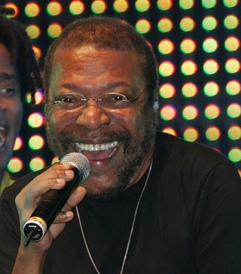You can help expand this article with text translated from the corresponding article in Portuguese. (June 2024)Click [show] for important translation instructions.
|
Martinho da Vila | |
|---|---|
 | |
| Background information | |
| Born | Martinho José Ferreira February 12, 1938 |
| Origin | Duas Barras, Brazil |
| Genres | |
| Occupations |
|
| Instruments | |
| Years active | 1967–present |
| Website | |
Martinho da Vila (born February 12, 1938) is a Brazilian singer-songwriter, composer, and percussionist, who is widely considered to be a pioneer of samba and MPB.


